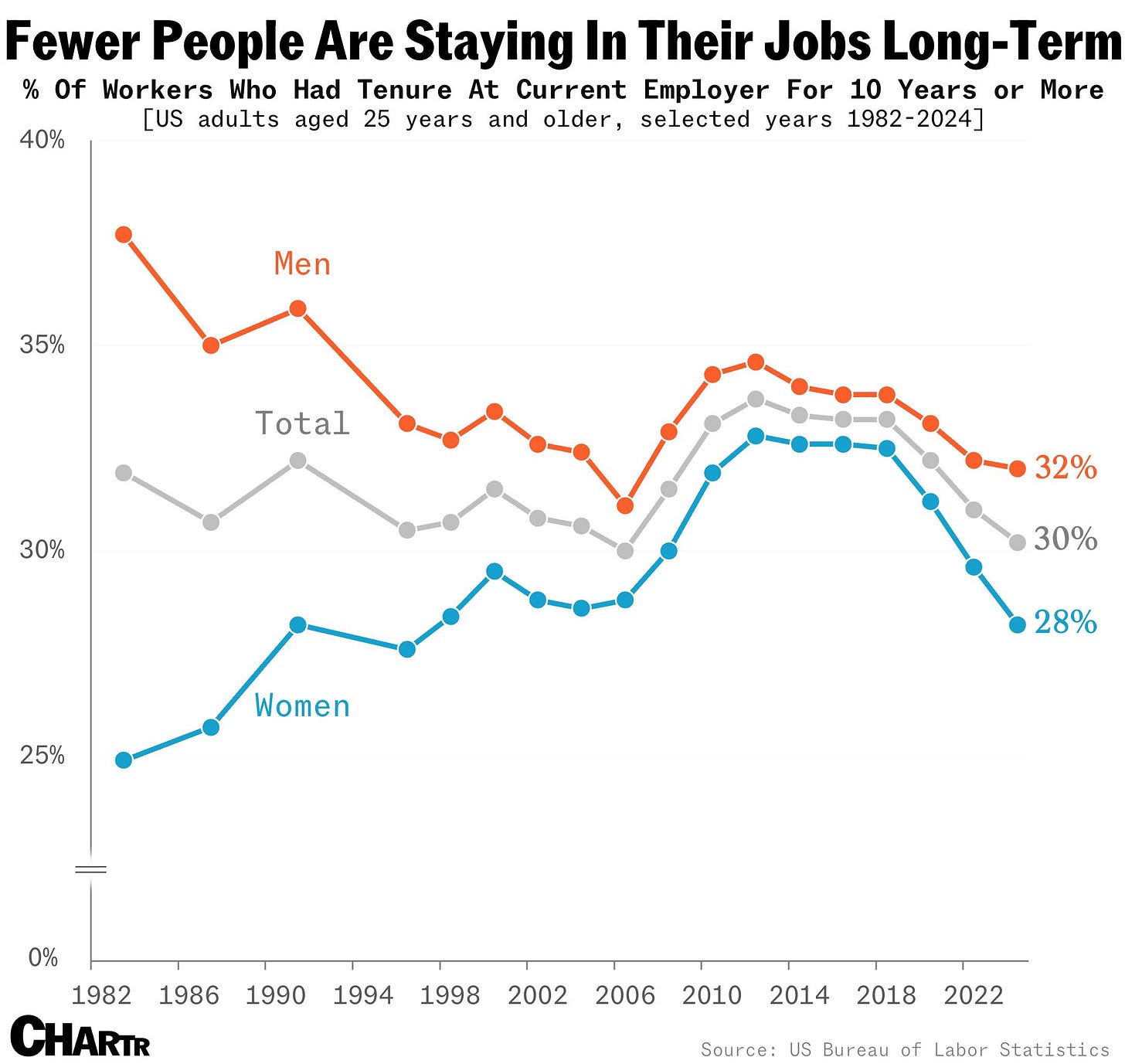October 2024 - on managers fostering innovation, preventing emergencies, telling stories, and dealing with RTO
Issue 69
Welcome to the issue of Oktoberfest and Halloween!
It was also the month of Breast Cancer Awareness. A cause dear to my heart.
I have kept the entries a little shorter this time. They still pack a punch. Enjoy!
In 2024, the total percentage of employees aged 25 years or over who had been with their current employer for 10 years or more fell to just 30.2%.
Many leaders would like their large firm to be as nimble as a startup. Enterprises can encourage organizational agility, proactivity, and adaptability by putting in place four guardrails that define how employees should pursue innovation.
VC a16z thinks AI can solve the “messy inbox problem” that typically sits at the top of the funnel for most white-collar work - the countless hours synthesizing waves of unstructured information and entering data into industry-specific systems of record. (They’re also plugging one of the companies they invested in). The “judgment call” is the interesting bit here.
A month after Amazon said it was calling workers back to the office full time, office-occupancy rates for everyone else have gone down.
For these researchers, this stems from a misunderstanding of how people actually connect at work.
“Going quite a bit faster when you’re going slowly is a really big gain. Going very fast when you’re already going fast is the action of a dickhead.” A provocative piece on the assumptions we use when assigning work or when taking on a new assignment. Well worth reading.
It’s not an emergency. It’s poor planing. A first-person account.
Research paper: In recent decades, the expectations of the managerial role have quickly changed, in almost all sectors, from supervision to collaboration. Firms treating managers as collaborators have a much higher proportion of middle managers than those still treating them primarily as supervisors.
Podcast: Stories can become tipping points for change – not just for the audience but also the leaders who tell their stories. An invitation to own your story and share it.
I could not trace the source of this. Will gladly acknowledge. It offers an interesting reframing: competition disappears when you’re on a timeline most never consider.
And now for something completely different







